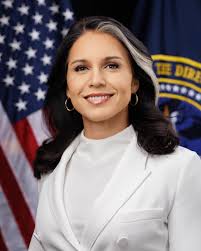Tulsi Gabbard: A Look at Her Political Influence and Future

The Significance of Tulsi Gabbard in American Politics
Tulsi Gabbard, the former U.S. Congresswoman from Hawaii, has been a prominent figure in American politics, known for her unique perspectives and progressive stance on various issues. With her recent decisions and activities, Gabbard remains a relevant topic of discussion in the political arena, particularly as the 2024 presidential elections approach.
Background and Political Career
Born on April 12, 1981, Tulsi Gabbard made history in 2013 when she became the first Hindu elected to the U.S. Congress. Representing Hawaii’s 2nd Congressional District, she emerged as a vocal advocate for military reform, climate change, and social justice. Her stance as a critic of U.S. foreign intervention and her military service as a member of the Hawaii Army National Guard set her apart from traditional political figures.
2020 Presidential Campaign
Gabbard gained international attention during her bid for the 2020 Democratic presidential nomination. Her campaign focused on progressive policies, including Medicare for All and a non-interventionist foreign policy. Despite not securing the nomination, Gabbard garnered a significant following and became known for her willingness to challenge both the Democratic establishment and Republican policies.
Recent Developments and Shift from the Democratic Party
In recent months, Tulsi Gabbard has made headlines by announcing her departure from the Democratic Party, citing a lack of alignment with her values. This decision has sparked debates about political identity and the shifting landscape within American politics. She has recently been involved in various speaking engagements and public forums where she discusses issues of freedom, individual rights, and the importance of addressing the polarization in contemporary politics.
The Future of Tulsi Gabbard
As the political climate shifts, many are curious about Gabbard’s next moves. Speculations suggest she may consider running as an independent candidate in the 2024 elections or potentially align with alternative political movements that resonate with her core beliefs. Her recent initiatives and public presence indicate that she remains committed to influencing the national dialogue on critical issues.
Conclusion
Tulsi Gabbard’s journey through American politics illustrates the complexities of political affiliation and the evolution of contemporary political discourse. As one of the notable faces of the new political landscape, her contributions and decisions will continue to shape the conversation leading into the upcoming elections, marking her as a figure to watch in the months ahead.






